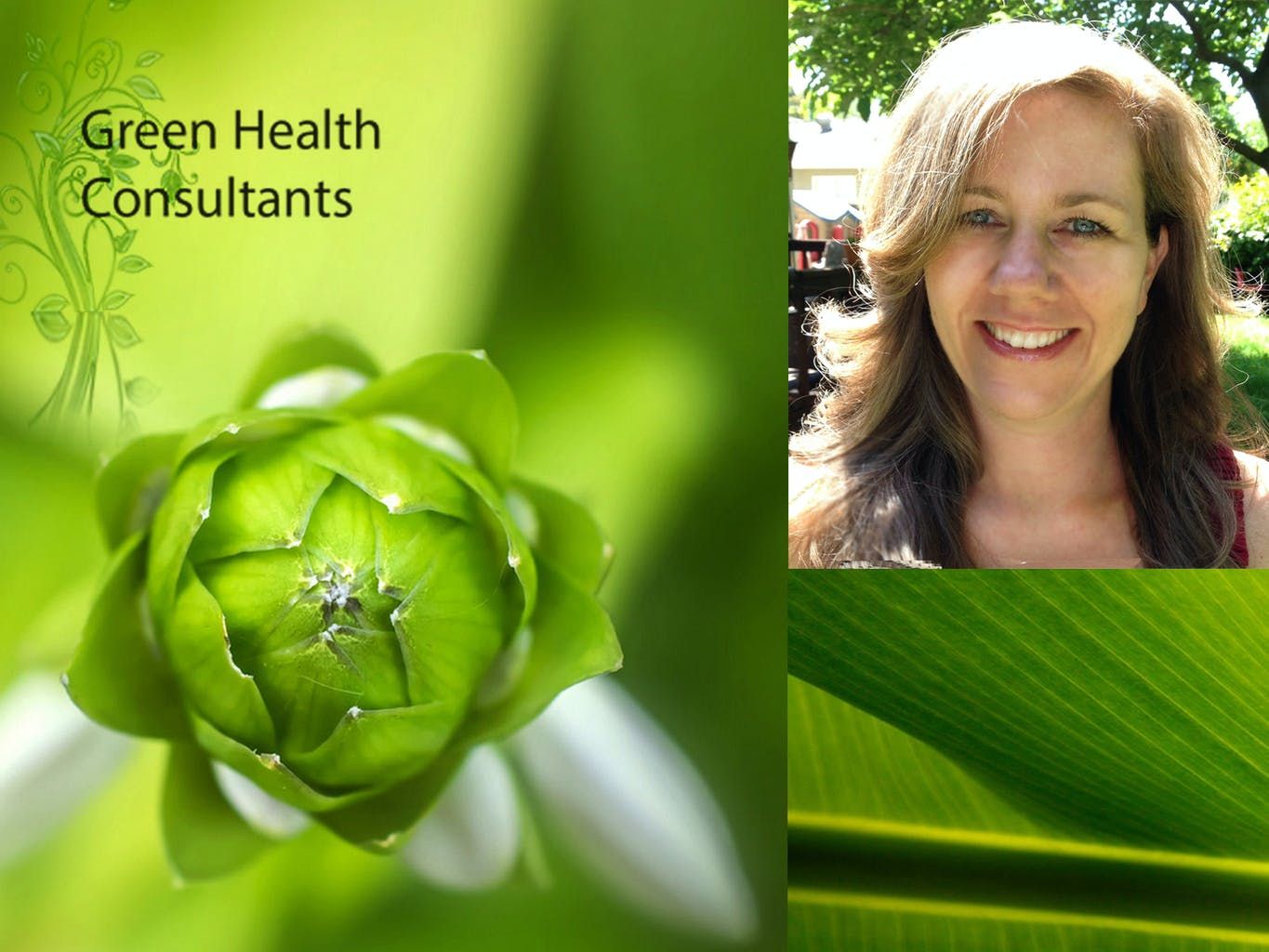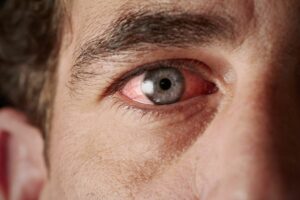If you are in the cannabis industry in Northern California, it does not take long before you hear the name Eloise Theisen (MSN, RN, AGPCNP-BC), the founder of Green Health Consultants. Eloise spent 15 years as a patient-focused nurse specializing in cancer, epilepsy, chronic pain, ALS, dementia, Alzheimer’s, Parkinson’s, PTSD, fibromyalgia, and various autoimmune and neurological diseases. She founded Green Health Consultants because she saw a gap in the market for services that catered to patients needing individualized cannabis counseling.
Green Health Consultants is unique in that it is one of the first such services being provided within the state of California. Eloise has an extensive medical background as well as in-depth experience with cannabis treatments. This experience provides credibility as she helps develop individualized treatment plans for her patients in collaboration with dietitians and/or a patient’s doctor. Unlike your local dispensary’s ‘bud tender’ (people who help you select cannabis at a dispensary), Eloise is able to thoroughly evaluate a patient’s medical history and current diagnosis. Through this analysis she is better able to guide her patients towards the best application of medical cannabis.
Eloise counsels patients in person, over Skype or by telephone and will often stay with patients throughout a treatment plan giving additional counsel when needed to ensure the right treatment plan is found. Since opening her service in Northern California last year, Eloise has seen a full roster of patients on a weekly basis. She has been covered by CBS, Fox News, Newsweek and SF Gate among others.
What led you to start Green Health Consultants?
I was an Oncology nurse for thirteen years and in addition I did palliative care as well as hospice care. During this time I went into management at John Muir hospital in Walnut Creek, where I managed the oncology, geriatric and endocrine units. Around this time, I unfortunately got in a terrible car accident. I was injured badly and essentially became disabled. Unable to work, I lost my job and I ended up trying to manage my pain with standard pharmaceuticals with little to no success. A close friend pushed me to try cannabis, and after a certain point I decided I had nothing left to lose, so I tried it. It was the first time I felt my pain was well managed. I started with edibles, then I did a lot of high CBD, full extract cannabis oil and I smoked periodically. Eventually, I decided to wean myself off of all pharmaceuticals and I used cannabis to go through the withdrawals.
During this time, while I was going through my journey to better health, I realized none of the medical professionals knew how to help me with cannabis. In fact, when I told them of my success with cannabis, they did not even have much curiosity to find out more. I had worked with many of them and I knew them well, so I was surprised. As a result of my experience, I decided to go back to school to become a nurse practitioner, initially thinking I might go back to oncology. I was doing my nursing hours at a local clinic and about 50% of my patients started asking me about incorporating cannabis into their treatment plan. With my own success with cannabis, I realized the need for someone to guide patients in how to properly incorporate cannabis into their treatment regimen.
There is such a gap from when the doctor gives a person their recommendation to when they take their medicine. So many physicians I knew did not want to deal with it, as they did not want their patients to get hurt or to fall into a hole. So essentially, they turn their back on it. My point has always been that patients are already using it, and it is in the physician’s best interest to help their patients find the right solution. Patients need to learn and become educated so that they can take the medicine safely and effectively.
When I was injured, I met an experienced cannabis oil maker. She knew I was a nurse practitioner and she was looking for a case manager, for someone to follow her patients throughout their treatment. Working with her I researched applications of cannabis, learned best practices, monitored drug interactions and potential side effects. This experience really helped influence and shape my knowledge base, giving me the more in depth experience for when I opened my business just over a year ago.
What are the most common conditions you treat within your practice?
Pain, sleep and dementia are some of the most common ailments people would like to treat when they see me. Based on my oncology background, I see a lot of cancer patients. Many people with cancer find me online and are seeking symptom management and may or may not be dealing with chronic pain. Probably 50% of my patients are oncology patients and around 50% are senior citizens.
A lot of seniors that come to see me are from Rossmoor, a local retirement community here in the East Bay of San Francisco, but I also see seniors from all over California. In most cases, senior citizens need a lot of reinforcement and ongoing education. They are used to being told to take a certain dosage at certain times of day, but cannabis does not typically work this way, so they need a lot of extra support. I typically spend at least an hour with a senior patient and often my consultations continue so that I may help them with the appropriate type of medication and ongoing dosage recommendations. Many times it takes time to find the right combination.
The ‘Truth About Cancer’ is a video series that was recently released and based on that, I have gotten a lot of people seeking my services. I also do a lot of patient outreach and education, so that people start to understand better the options that are available to them.
You are also active with the American Cannabis Nurses Association?
Yes, I am a board member on the American Cannabis Nurses, a national organization dedicated to expanding the knowledge base of endo-cannabinoid therapeutics among nurses. We are developing a curriculum so that people who would like to advise others can become competent in cannabinoid therapies. ACNA currently offers a course for nurses that demonstrates competency after 6 hours of instruction. At the beginning of the year we hope to launch a new online program. There is a great need for education and standards among nurses and nurse practitioners.
People often ask “Can CBD oil cure cancer?” What is your answer to this question?
This is a big topic and I try to be as straightforward as possible when people come to me asking this question. People with cancer are desperate for an answer and most people hope for a miracle cure. From my experience in treating hundreds of patients, I can count on my two hands the number of people I have known that have gone from stage 4 and have ‘cured themselves’ of cancer. Many within that handful, the cancer did come back and some have since passed away.
I am not sure that we fully understand how CBD oil can cure cancer. Everyone’s response is unique and often THC is needed. CBD only has been, in my experience, less effective than a combination of THC and CBD. That said, it does reduce tumors and stabilize their tumors and most importantly there is a quality of life that comes along with its use. Often people will use it in conjunction with their chemotherapy, and I believe there is only positive value in using CBD oil in addition to traditional therapies. I believe there are a lot of misconceptions about CBD oil and people read various things online that may not be true.
What guidance do you give to senior citizens who are new to cannabis?
85% of my elderly patients have never tried cannabis and the average age of an elderly patient who sees me is about 76. These people typically missed the time period in the sixties where everyone was smoking weed at the Grateful Dead. My number one concern for them is their safety, so I always start them “low and slow”. It is important for them to know that typically there is no magic bullet and that this process may take time in order to find the right dosage and ratio.
Most often, an elderly person will not understand self-titration, so I spend a lot of time with them to empower them with going up and down on their dosages. I try to tell them what they should expect based on what is the most common outcome, but I also prepare them for the fact they might be on the opposite end of the spectrum. Sometimes, I get really complicated cases, mainly women who have mystery illnesses where their doctors have been unable to help them. Although I would like to work with their doctors, many people do not want me to tell their doctor and frankly many doctors are still not open to an elderly patient seeking out cannabis as a treatment. This is very unfortunate.
How do you help people actually get the right medicine for their condition?
It depends on where the patient is located. If they are local to me it is easier as I work with a local dispensary, which carries the medicine I prefer to use. If someone is not local, sometimes I will call the local dispensary for them to find out if they are willing to carry products I would like to recommend. It can be challenging, because even dispensaries that carry the products I recommend, may run low or be out of stock. It’s important people go to the right dispensary and get the right medication for their condition.
There have been new studies on how cannabis may affect dementia, what are your thoughts on this?
This is a hot topic. Dementia is a big issue and I work with a facility that is an assisted care facility where many of the dementia patients are in a locked unit. Often they will have very aggressive behavior which pharmaceuticals are unable to manage. Cannabis has been shown to help with aggressive behavior. Most of the dementia patients I see, we use cannabis to manage their behavior not to actually slow down the onset of dementia. These patients often become so aggressive that they need one on one care, which many families are unable to afford. An aggressive dementia patient will often disrupt other residents and often they may even be on the verge of being kicked out of the facility. This is a really, really big problem. Right now, I have a patient who had to be removed from his living situation within his facility. We are in the midst of finding the right dosage of medication for him, so he can better manage his behavior and frankly, have a better quality of life.
Cannabis for a dementia patient can bring relaxation, happiness and joy back into a patient’s life. Dementia can cause aggression, anger and total loss of control. The introduction of cannabis can bring back a sense of calm and peace for these patients. A positive outcome with cannabis can be very powerful for both the patient and the family. Family members can be so stressed about taking care of a family member with dementia. It negatively impacts everyone involved.
Can cannabis help people get off of and stop chronic over use of pharmaceutical drugs?
In my experience it certainly seems to help. Recently I treated a patient that was about to be moved to a care facility for the onset of dementia. I learned she had been on narcotics for over 40 years and so we decided to slowly wean her off the narcotics and have her use cannabis as the replacement. Very quickly she became a different person, for the better, and she became as sharp as a tack. People were amazed because what they believed was dementia was actually the side effects of so many years of narcotic use. The cannabis was able to help her manage chronic pain and allowed her to sleep well. She is a new woman! She is now able to stay in her independent living facility where she lives today. This patient is the walking poster child of how cannabis can turn someone’s life around for the better. Yes, cannabis can help people get off of pharmaceuticals.
What else would you like to communicate to people who are new to cannabis?
I think people need to manage expectations as to what cannabis can do for them and in what time frame. At the moment, cannabis is on a pedestal as almost a ‘cure all’. It is often superior in terms of effectiveness in lieu of other medications, but at the same time many people need to realize that some things may not work for them and it will often take time to explore what does actually work. Often people will try cannabis, it does not work well for whatever reason, and then they want to give up trying. Sometimes it takes a lot of back and forth to find the right medication and the right dosage.
I also think it is important for a medical professional to follow someone who is new to cannabis, throughout the initial stages of their treatment. Too often people get their recommendation and that’s it. They go to the dispensary ‘bud tenders’, they get the wrong medication and then receive free samples on top of that, and often things will go terribly wrong for the patient. What I really hope for is better education, outreach and for medical professionals to step up and help patients out when they need it most.
Green Health Consultants operates within the San Francisco Bay Area and welcomes new patients both nationally and internationally. You may book an appointment online. Eloise conducts her consultations in person, over the phone or on Skype.
If you are new to cannabis and want to learn more, take a look at our Cannabis 101 post. HelloMD can help you get your medical marijuana recommendation; it’s 100% online, private and efficient.






